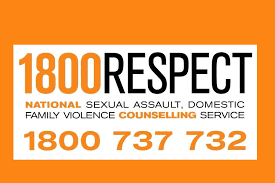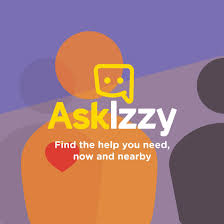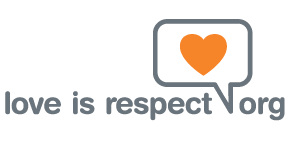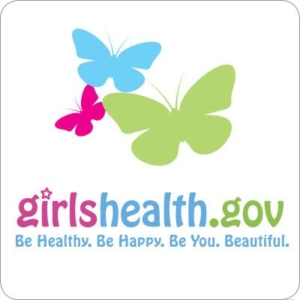Worried about a friend?
Working out what to do when you are worried about the safety of a friend in an unhealthy relationship can be tricky. Just asking the question shows that you are a supportive friend and that’s a good start. There’s no such thing as one right way to start the conversation.
It’s normal to watch out for your friends and view their relationships through a critical lens. Remember, your friend may not see that there is a problem, nor can you force a friend to do anything they don’t want to do. Ultimately, it needs to be their decision, but there’s a lot you can do to help your friend stay safe.
Is this abuse?
Dating abuse and violence can happen between teens, young adults and adults. It is a pattern of destructive behaviours used to exert power and control over an intimate partner over a course of time. Relationships are on a spectrum, so it can be difficult to recognise when a line is crossed from healthy to unhealthy or even abusive.
For more information see Love is Respect: Warning signs of dating abuse and Relationship spectrum.
Raising the issue
The most productive thing you can do is talk to your friend and let them know that you’re worried about any harm – physical or otherwise they may experience from their partner. Having a direct but empathetic conversation will them know that you’re concerned but also that you’re there for them. However remember that physically intervening may put you and them in harm’s way. To pressure for the discussion, think about what you want to say, how you want to say it, and any resources you’ve gathered to share. Doing this shows that you’re supportive and helping to find a way to leave an unhealthy or abusive relationship when your friend is ready.
Before raising the issues with your friend, you may want to reflect on the following questions:
- How do you know abuse is happening in the relationship?
- Have you noticed any changes in your friend’s personality or behaviour?
- Have you talked about this with your friend in the past? If so, how did they react.
- Do other members of family and friends also suspect that the partner is engaging in unhealthy behaviours?
- How will you react if your friend doesn’t want your help?
Asking these questions will help you clarify on what you suspect about the relationship as well as help frame your conversation. You may also seek help from Domestic Violence Crisis Service. They can help you strategise how to talk to your friend and can also be a great resource for your friend if they choose to leave the relationship.
What if my friend is the abuser?
It is difficult seeing a friend as someone who hurts others. It may take a while for you to realise and admit that this person is abusive. However, remaining silent or making excuses for their behaviour is encouraging them to continue their hurtful ways. Having control over their partner may benefit them and they may turn to you to justify this abuse. Do not support this behaviour in any way.
In the end, only the abuser can decide to change their ways, but you may be able to influence their behaviours. Remember, you aren’t turning against your friend, but you’re helping them towards a healthy relationship.
Other things you can do
The way you help and how much you help is up to you. You could help your friend in practical ways, provide support and listen, or decide to step back and give them space.
Remember, it’s OK if stepping in becomes too much for you as you also need to look after yourself.
Where to get help
There are many options for both you and your friend to talk to someone about your worries and end it. This may be difficult and you will need support. Talk to someone you are comfortable with.
If you are in immediate danger, call the police on 000. Remember you can call the police from your mobile even without credit.
These organisations can help:
- Psychotherapy and Counselling Federation of Australia ) National Register (Family and Relationship Therapy) Tel. (03) 9486 3077
- Relationships provides counselling, mediation, dispute resolution, relationship and parenting skills education, community support, employee assistance programs and professional training. Services and programs are available nationally Tel. 1300 364 277
- 1800 is the national sexual assault and family violence counselling service for people living in Australia Tel. 1800 737 732
- Beyond is an independent not-for-profit organisation that provides telephone and online support for depression, anxiety, and related disorders, as well as online resources and information Tel. 1300 22 4636
- Counselling offers free online alcohol and other drug counselling
- offers confidential counselling for people of all ages and backgrounds who are affected by alcohol or drugs Tel. 1800 888 236
- Family Relationship Advice , Australian Government Tel. 1800 050 321
- Family Drug family drug and gambling help, information and support Tel. 1300 660 068
- Gambling Help provides free, anonymous, 24/7 online support, telephone support, self-help tools and information for identifying and dealing with problem gambling Tel. 1800 858 858
- Men’s Referral is a free, confidential telephone helpline that offers counselling, advice and support to men who have anger, relationship or parenting issues Tel. 1300 766 491
- MensLine provides national telephone and online support, information and referrals for men with family and relationship concerns Tel. 1300 78 99 78
- provides telephone and online support to help lesbian, gay, bisexual, transgender, and intersex communities work towards better health, including mental health Tel. 1800 184 527
- safe Family Violence Response Centre Tel. 1800 015 188
- Women’s Information and Referral Exchange free support, referral and information for all Victorian women, nonbinary and gender-diverse people Tel. 1300 134 130
Adapted from Better Health Victoria: Relationship support services.











